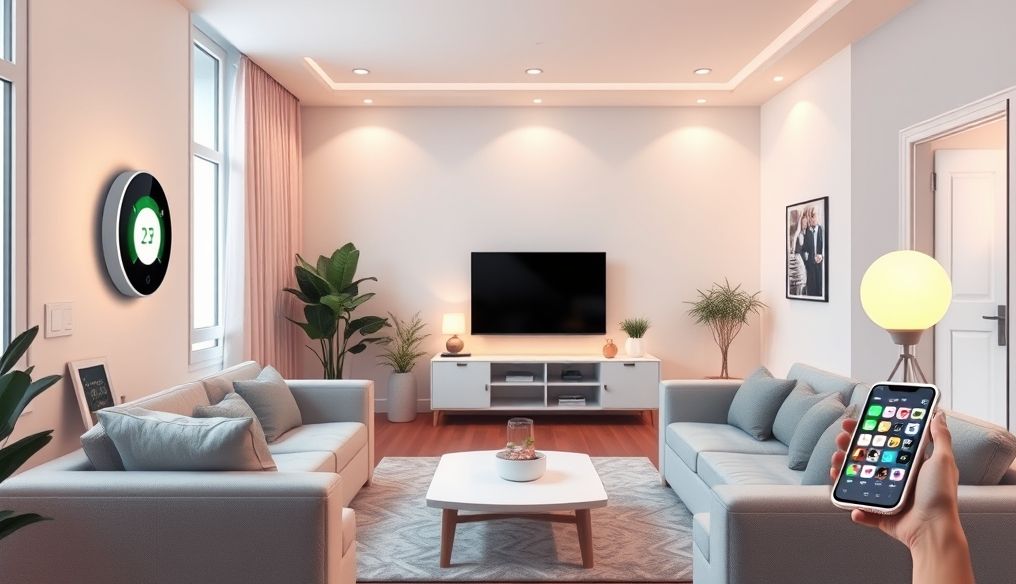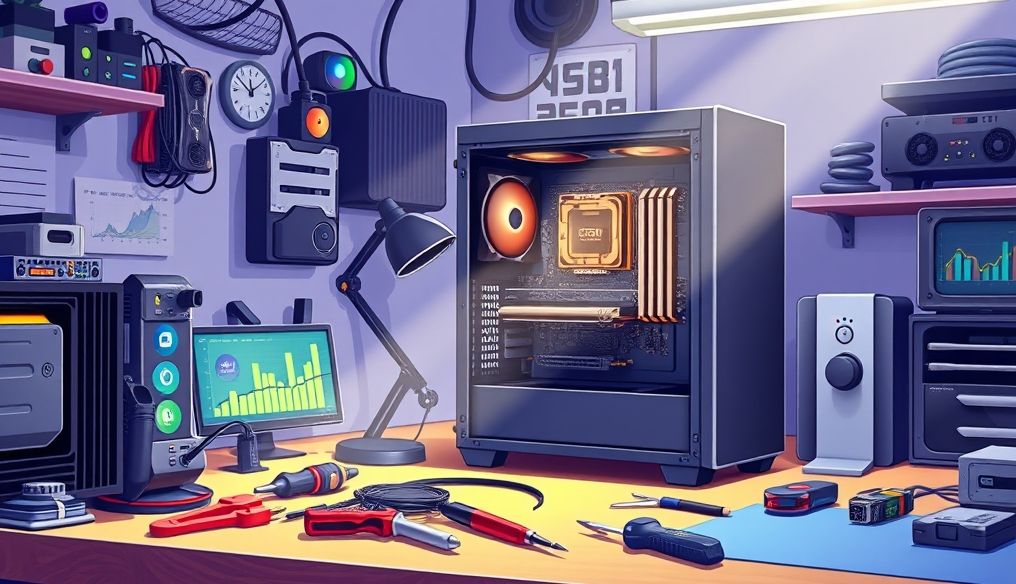Are Smart Homes a Good Idea? A Journey Towards a Smarter Home
In a world where technological progress is accelerating, smart homes have become the talk of the town. Smart homes promise to improve comfort, increase security, and save energy, but are these promises real? And is investing in transforming your home into a smart home worth it? This article answers these questions, explores the benefits and drawbacks of smart homes, and provides you with a comprehensive guide on how to start building your smart home step by step.
What is a Smart Home?
A smart home is a home equipped with devices and systems connected to the Internet, allowing remote control and automation of certain tasks. These devices can be controlled via smartphone, tablet, or voice commands, providing unparalleled ease and convenience.
Common smart devices include:
- Smart Lighting: Allows remote control of lighting, adjusting brightness and color, and scheduling lighting to fit your daily routine.
- Smart Locks: Provide secure keyless access and allow you to monitor who enters and exits your home.
- Smart Security Cameras: Provide live video surveillance around the clock and instant alerts if suspicious movement is detected.
- Smart Thermostats: Learn your habits and automatically adjust the temperature to save energy.
- Smart Appliances: Include refrigerators, washing machines, dryers, and microwave ovens that can be controlled remotely and their performance monitored.
- Smart Voice Assistants: Such as Amazon Echo and Google Home, allow you to control other smart devices with voice commands.
Benefits of Smart Homes
Smart homes offer many benefits, including:
1. Convenience and Ease
Imagine being able to turn off the lights, adjust the temperature, and lock the doors, all from your smartphone while relaxing on the couch. This is the convenience that smart homes provide. You can automate routine tasks, such as turning on the coffee in the morning or closing the curtains at sunset, saving you time and effort.
2. Security and Protection
Smart homes help protect your home and family with smart locks, security cameras, and motion sensors. You can receive instant alerts if any suspicious activity is detected and check your home remotely at any time.
Example: According to a study by SimpliSafe, homes with smart security systems are 60% less likely to be burglarized.
3. Energy Saving
Smart homes help save energy with smart thermostats, smart lighting, and energy sensors. You can automatically adjust the temperature when you are away from home, turn off the lights in unused rooms, and monitor the energy consumption of different devices.
Example: It is estimated that smart thermostats can reduce heating and cooling bills by up to 20%.
4. Increased Home Value
A smart home is an attractive feature for potential buyers and can increase the value of your home when selling. Many buyers are looking for homes with modern technology, and a smart home is a good long-term investment.
Drawbacks of Smart Homes
Despite the many benefits, smart homes have some drawbacks, including:
1. Cost
The cost of smart devices and installation can be expensive, especially if you want to turn your entire home into a smart home. You should consider the cost of devices, installation, maintenance, and monthly subscriptions for some services.
2. Complexity
Setting up and using smart devices can be complicated for some people, especially if they are not familiar with technology. You may need to hire a specialist to install and program the devices.
3. Security Concerns
Smart devices are vulnerable to hacking, which could compromise your privacy and security. You should take the necessary precautions to protect your Wi-Fi network and update smart device software regularly.
4. Dependence on the Internet
Smart homes rely on the Internet, and if the Internet goes down, you may lose the ability to control some devices. You should make sure you have a reliable Internet connection before investing in smart devices.
How to Start Your Journey Towards a Smarter Home?
If you are thinking about turning your home into a smart home, here are some tips to help you get started:
1. Define Your Needs and Goals
Before buying any smart device, define your needs and goals. What problems are you trying to solve? What features are you looking for? Do you want to improve security, save energy, or increase comfort?
2. Start Small
Don't try to turn your entire home into a smart home all at once. Start with some basic devices, such as smart lighting or a smart thermostat, and then gradually expand your system.
3. Choose Compatible Devices
Make sure the devices you buy are compatible with each other and with the operating system you use. You can use a unified platform, such as Apple HomeKit, Google Assistant, or Amazon Alexa, to ensure compatibility.
4. Secure Your Wi-Fi Network
Change your Wi-Fi password regularly, use a strong password, and enable WPA3 encryption to protect your network from hackers.
5. Update Smart Device Software Regularly
Make sure to update smart device software regularly to fix security vulnerabilities and improve performance.
6. Look for Trusted Brands
Choose smart devices from trusted brands that have a proven track record of quality and security.
Examples of Smart Devices for Beginners
Here are some smart devices that are ideal for beginners:
- Smart Bulb: Easy to install and control remotely.
- Smart Thermostat: Helps save energy and improve comfort.
- Smart Lock: Provides secure keyless access.
- Smart Security Camera: Provides live video surveillance and instant alerts.
- Smart Voice Assistant: Allows you to control other devices with voice commands.
Conclusion
Smart homes are a good idea if implemented correctly. They can provide you with comfort, security, energy savings, and increase the value of your home. However, you should be aware of the costs, complexities, and security concerns associated with smart homes before making a decision to invest in them. Start small, choose compatible devices, secure your Wi-Fi network, and update smart device software regularly, and you'll be on your way to building your ideal smart home.
Disclaimer: The information contained in this article is for informational purposes only and should not be considered professional advice. Consult an expert before making any decisions regarding smart homes.




